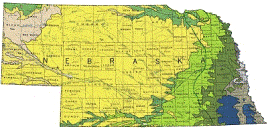United States Geological Survey

United States Geological Survey: Staff Publications
Document Type
Article
Date of this Version
2021
Citation
Front Ecol Environ 2021; doi:10.1002/fee.2377
Abstract
Ecosystem transformation involves the emergence of persistent ecological or social–ecological systems that diverge, dramatically and irreversibly, from prior ecosystem structure and function. Such transformations are occurring at increasing rates across the planet in response to changes in climate, land use, and other factors. Consequently, a dynamic view of ecosystem processes that accommodates rapid, irreversible change will be critical for effectively conserving fish, wildlife, and other natural resources, and maintaining ecosystem services. However, managing ecosystems toward states with novel structure and function is an inherently unpredictable and difficult task. Managers navigating ecosystem transformation can benefit from considering broader objectives, beyond a traditional focus on resisting ecosystem change, by also considering whether accepting inevitable change or directing it along some desirable pathway is more feasible (that is, practical and appropriate) under some circumstances (the RAD framework). By explicitly acknowledging transformation and implementing an iterative RAD approach, natural resource managers can be deliberate and strategic in addressing profound ecosystem change.
Included in
Geology Commons, Oceanography and Atmospheric Sciences and Meteorology Commons, Other Earth Sciences Commons, Other Environmental Sciences Commons


Comments
Open access